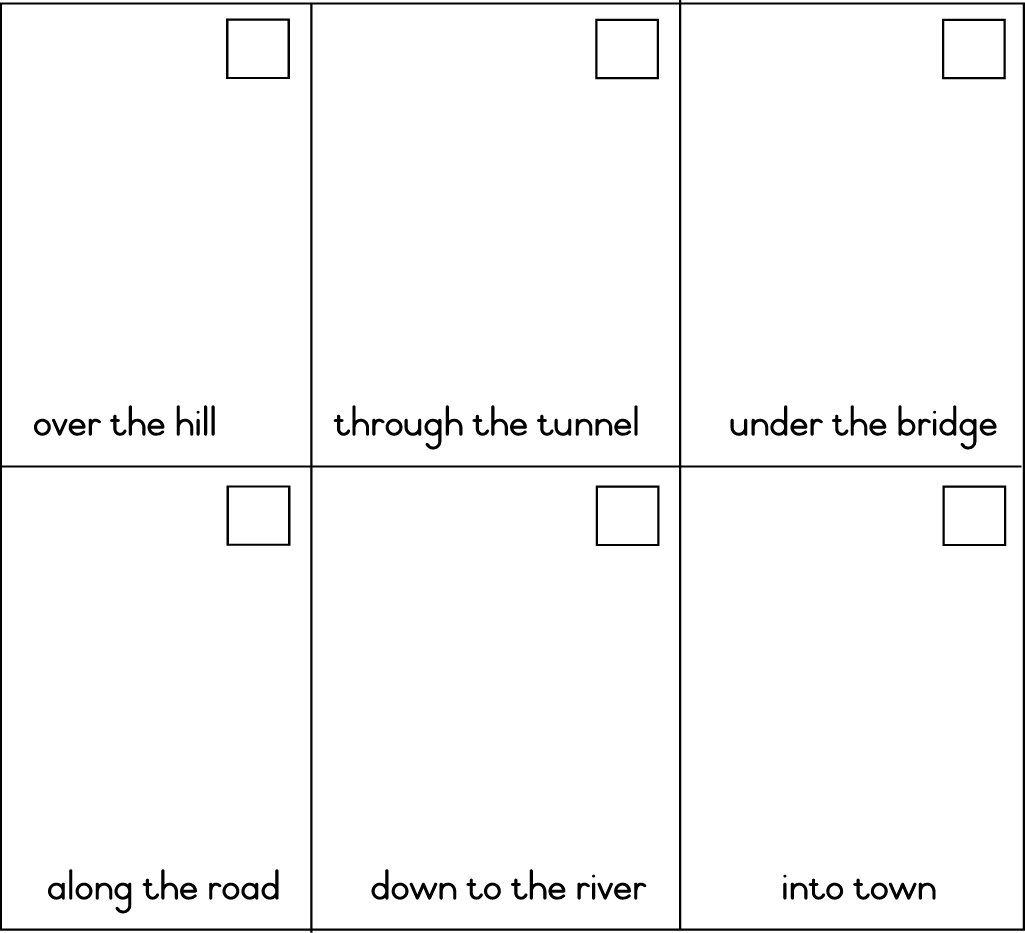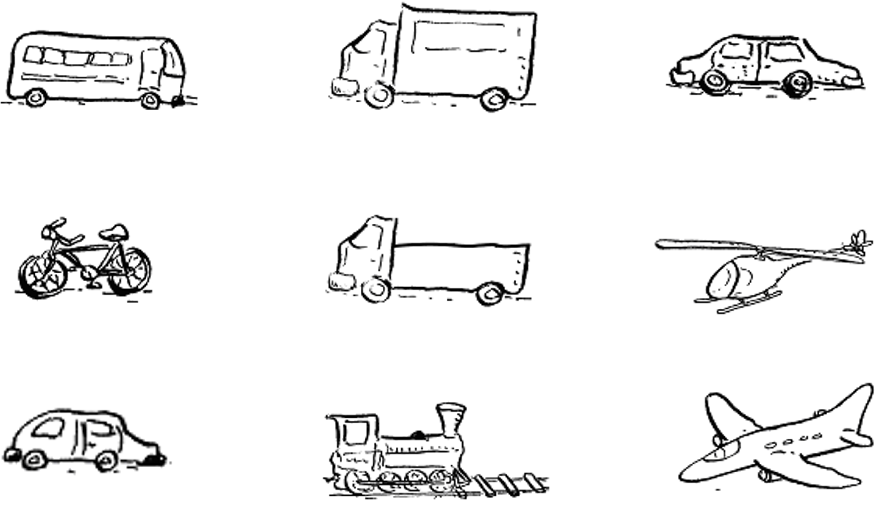| << Chapter < Page | Chapter >> Page > |
The topics chosen for the modules in Grade 1 are all related to stories which reflect the learners’ experience in the world in which they are growing up. They are relevant to both boys and girls.
Much depends on the number of times the learners hear the stories and rhymes and the provision made for the repetition of the vocabulary introduced. At first this is done classically. As the learners become more familiar with English they can communicate with a friend. Eventually they will want to tell the teacher and answer questions about the texts.
The educators must keep in mind that there may be many/some learners in the class who are still only at the listening stage, but with the necessary encouragement and praise they will soon join in and begin speaking in English.
It is suggested that the average learners complete all eight modules during the year, finishing ± two modules per term.
Allow the slower learners to proceed at their own pace when doing the written activities but expose them to all the listening and speaking activities with the class.
The quick learners can be extended and given more tasks and activities to complete.
Tim and Tina are off on a shopping spree on a rainy day in winter. They visit many different kinds of shops. Learners colour articles which boys/girls would like to buy. They answer yes or no to questions and complete a graph about the traffic.
Integration of themes
This module lends itself to the discussion of such issues as job opportunities for all including disabled persons; the acquiring of wealth; the results of unemployment.
Tim and Tina go to town.
Mummy and Daddy will take them to town.
Tim wants a new pair of shoes.
He also wants a rugby ball.
Tina wants a new dress.
She also wants a new umbrella.
Daddy will take them in the car.
Questions: Did you listen?
1. Who wants to go to town?
2. Who will take them?
3. What does Tim want?
4. What does Tina want?
5. Clap when you hear a word beginning with the same sound as tap.
6. Count as you clap.
| LO 1.1 | LO 1.1.7 | LO 2.1 | LO 2.6 |
Mummy says,

Listen and do:
| LO 1.3 | LO 2.2 | LO 3.7 |

rain ……………………………………………………………………………………...

clouds …………………………………………………………………………………..

Dad ……………………………………………………………………………………..

shopping ………………………………………………………………………………..

cheque book …………………………………………………………………………….

window pane …………………………………………………………………………...

a rainy day ……………………………………………………………………………...

| LO 3.1.2 | LO 4.1 |
Tim says,
“Splish, Splash, Splish!
A drop on my nose!
Here’s another one too
It’s right here on the rose.
Tina says,
“Splish, Splash, Splish!
It’s raining much faster.
The splishes are bigger
The puddles much larger!
Splish, Splash, Splish!
G.J.M.

| LO 1.1.3 | LO 2.2 | LO 3.7 |


| LO 1.1.3 | LO 1.1.4 | LO 3.1.1 | LO 5.1.8 | LO 6.9 |


| LO 1.3 | LO 1.5 | LO 2.6 |
Learning Outcome 1: LISTENING : The learner is able to listen for information and enjoyment and respond appropriately and critically in a wider range of situations.
Assessment Standard 1.1: We know this when the learner understands short, simple stories:
1.1.3 draws a picture of the story;
1.1.4 puts pictures in the right sequence;
1.1.7 shows awareness of boys and girls in conventional roles;
Assessment Standard 1.3: We know this when the learner understands simple oral instructions by responding physically;
Assessment Standard 1.5: We know this when the learner shows respect for classmates by giving them a chance to speak, and by listening to them.
Learning Outcome 2: SPEAKING : The learner The learner is able to communicate confidently and effectively in spoken language in a wide range of situations.
Assessment Standard 2.1: We know this when the learner responds appropriately to simple questions with single words or formulaic phrases;
Assessment Standard 2.6: We know this when the learner pronounces familiar words clearly;
Learning Outcome 3: READING AND VIEWING : The learner is able to read and view for information and enjoyment and respond critically to the aesthetic, cultural and emotional values in texts.
Assessment Standard 3.1: We know this when the learner use pictures to understand written texts:
3.1.1 makes sense of a picture story;
Learning Outcome 6: GRAMMAR AND VOCABULARY : The learner knows and is able to use the sounds, vocabulary and grammar of the language to create and interpret texts.
Assessment Standard 6.9: We know this when the learner understands some prepositions in oral texts.

Notification Switch
Would you like to follow the 'English first additional language grade 1' conversation and receive update notifications?